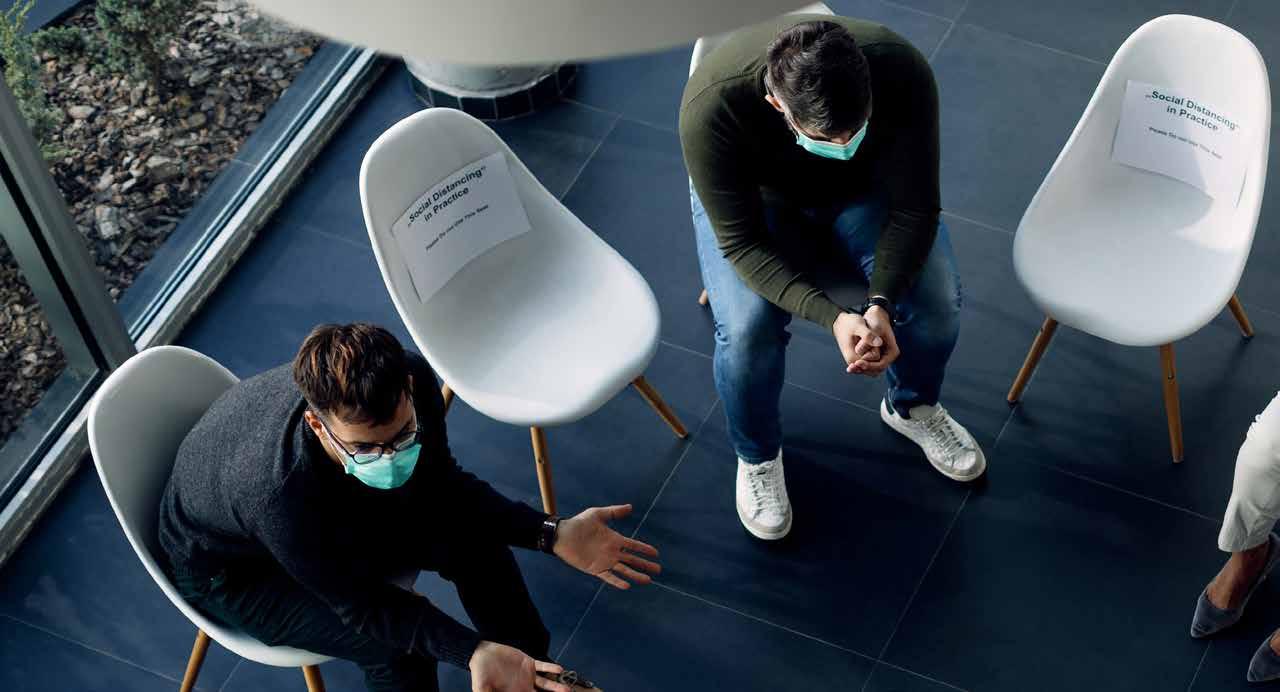
4 minute read
SOCIAL JUSTICE
REPOSITIONING SOCIAL WORK TO IMPROVE MENTAL HEALTH
BY JIM MORTON, MSW, RSW, SOCIAL JUSTICE COMMITTEE CHAIR
Advertisement
COVID 19 shaped our experience during the past year. On the other hand, the pandemic has highlighted, underlined and amplified concerns about mental health. Governments and political parties at both federal and provincial levels have made commitments to increase investment and to give enhanced priority to the availability and delivery of mental health and addiction services.
I emphasize mental health because achieving optimum mental health in Nova Scotia has continued to focus the attention of our committee.
Certainly the highlight of our year was the launch of Repositioning Social Work Practice in Mental Health in Nova Scotia (nscsw.org/mental-health-paper). This report and the research it describes, commissioned by NSCSW, is the work of Dalhousie University School of Social Work professors Catrina Brown, Marjorie Johnstone and Nancy Ross. It makes 29 recommendations. These include increasing financial investment in mental health and addictions services, the importance of authentic community consultation, and rethinking the integration of mental health and addictions.
The research in Repositioning also underlines the need for strengthening social work within the service delivery system, although, as the authors point out, “it is not social work that is limited, it is the neo-liberal, biomedical delivery approach itself.” Almost half of the report’s recommendations stress the importance of shifting to a bio-psycho-social model for delivering mental health and addictions services. A bio-psycho-social model recognizes individual humans as social beings, part of the systems in which we live. Social workers, the report argues, need to be better supported to help make this adjustment to a broader, more responsive service system.

As part of this attention to mental health, Social Justice Committee members were pleased, early last summer, to be a part of a briefing on Nova Scotia Health’s Mental Health and Addiction program, but surprised at how little NSH leaders understood the depth of social work concerns about the services system.
Attention to the issues, the research, to Repositioning Social Work Practice in Mental Health in Nova Scotia, and leadership from Annemieke Vink, also led to the creation of a document, “The Social Justice Committee strategic plan: A social movement to achieve optimum mental health in Nova Scotia.” The College has been supportive of the plan and we are hopeful it will provide a foundation for our advocacy work during the next several years.
In an early response to the pandemic, we cancelled a panel discussion on mental health that was scheduled for March 2020 at the Halifax Central Library. We were able to revive our plans and redesign them for a virtual setting. Big Ideas: A Conversation on Mental Health was delivered on Zoom in February 2021 with panellists Anna Quan, Sean Ponnambalam and Nancy Ross. Almost 300 people participated in a 90-minute reflection on first voice experience, the social determinants of health and the importance of considering adverse childhood experience as part of client and family centred care. We have intentions to make this Big Ideas conversation one of several, using a similar format, with other panellists and a range of diverse content, all related to the importance of shifting mental health and addictions toward a bio-psycho-social model of service delivery. In the months ahead this committee will continue to push toward optimum mental health for Nova Scotians. As we pursue that work we need input and feedback from members. And we also need your voices to find expression in letters to the editor, in messages to elected officials, and in the lunchrooms and cafeterias of your work places.
In the months ahead this committee will continue to push toward optimum mental health for Nova Scotians. As we pursue that work we need input and feedback from members. And we also need your voices to find expression in letters to the editor, in messages to elected officials and in the lunchrooms and cafeterias of your work places.
You have told us that social work needs to be repositioned within mental health in Nova Scotia. Let’s work together to clearly decide how that repositioning should look. It matters to our profession. And even more important, it matters to the people we serve.
Finally, the preparation of this report coincides with Annemieke Vink’s retirement. Annemieke has provided many years of leadership and support to the Social Justice Committee and to our profession. As Annemieke begins this new phase of her life, we hope she will carry with her our gratitude and our very best wishes for wonderful adventures in this next phase of life.
2020 COMMITTEE MEMBERS:
Harold Beals, Prasanna Kariyawansa , Janelle MacDonnell, Haley MacIntosh, Dermot Monaghan, Jim Morton (chair), Juanita Paris, Cassie Shaw-Bishop, Patricia StephensBrown, Maggie Stewart, Michelle Towell, Valerie White, and Annemieke Vink (staff).








